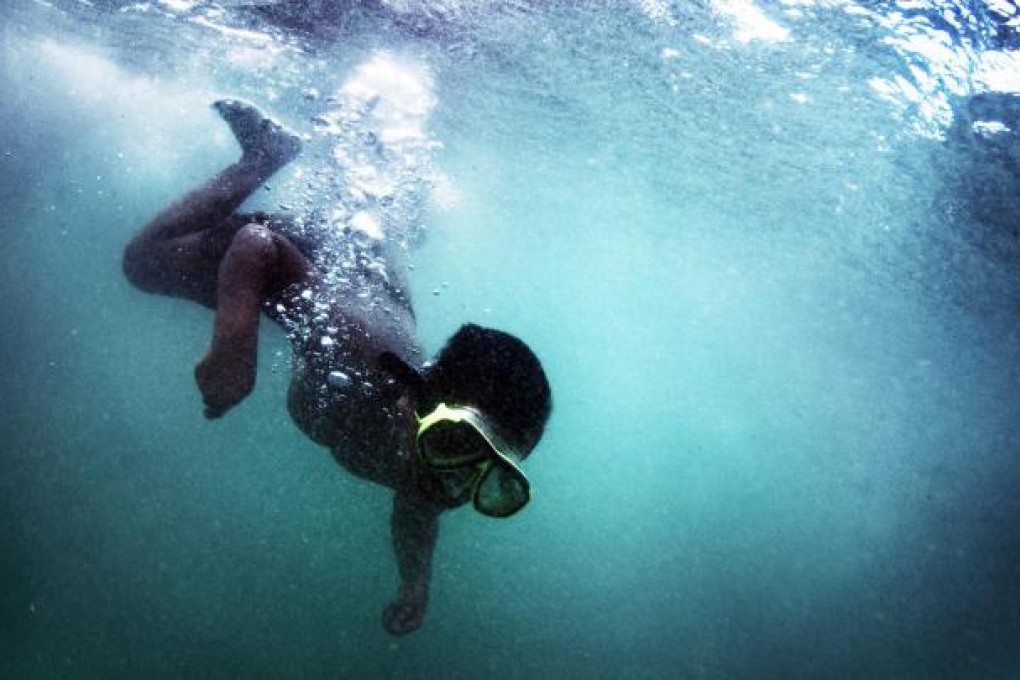Cut adrift: why Moken sea gypsies' nomadic way of life seems doomed
Ravaged by the 2004 tsunami and overwhelmed by the challenges of the modern world, the way of life practised by the Moken 'sea gypsies' for centuries appears doomed, writes Kate Hodal. Pictures by Giorgio Taraschi

Ngui takes one last breath and disappears with a tiny splash. Tunnelling through the turquoise waves, he dives past brightly coloured fish and coral, until he reaches the sandy bottom of the seabed, 20 metres down, where he begins scouring for tonight's dinner.
He wears no mask, no fins and no diving tank. He prefers sarongs and button-down shirts decorated with seashell and starfish motifs but the most startling thing about him underwater is his eyes. They are wide open.
Ngui, 30, belongs to the Moken, a nomadic, seafaring tribe of hunter-gatherers who live in the southern seas of Myanmar and Thailand. Little is known about their origins, but it is believed they are descended from migrant Austronesians who set sail from southern China about 4,000 years ago. Spending eight months of the year at sea, the Moken roam in small flotillas of - boats fashioned from a single tree and shared by a nuclear family - and return to land only to barter fish and shells for essentials such as rice and petrol, or to wait out the monsoon season in temporary shacks. It is a way of life that has existed, unchanged, for centuries - but one that may not last for much longer.
The 2004 tsunami greatly depleted the source of the Moken's only livelihood: the ocean's once-abundant array of seafood. International fishing boats are now wiping out the little that's left. Those Moken who have moved ashore are often forced to take dangerous jobs for menial pay. Those who stay at sea are sometimes arrested for lacking papers or permits. Others return to land after months afloat only to find their huts destroyed and luxury tourist resorts built in their place.
"The sea has changed and life has changed," says Ngui's father, Jao. "Things we used to do we can't do any more. Places we used to go we can't go any more. Life isn't fun any more."
It would be difficult to find a family that represents the changes wrought on the Moken as well as Jao's. He was born on a boat and spent his childhood at sea. He married at 16 and nearly pursued a traditional, aquatic lifestyle - until he and his wife decided to settle on land.
"Life was hard being illiterate," says Jao in the cramped house in Kuraburi, Thailand, that they now share with a 13-member extended family. "I wanted my children to go to school and have options."
